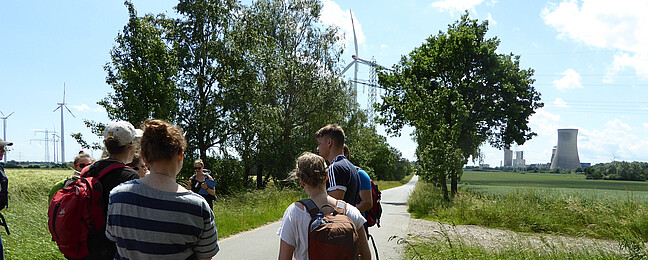


Topics, research questions and study content
Based on legitimized social agreements, it must be decided how and with what priority human livelihoods are to be protected, maintained and developed. For this purpose, spatially differentiated, implementation-oriented goals and models must be developed following the Federal Nature Conservation Act.
Nature conservation is the goal and landscape planning is the implementation.
Landscape planning uses instruments such as the environmental impact assessment, the intervention regulation or maintenance and development planning for these tasks. In addition, tools not governed by law are important, such as cooperation models, environmental education and public relations.
The research activities of the working group Landscape Planning and Nature Conservation were assigned to the overall objective of the transformation towards sustainability. This included, for example, research on spatial potentials for renewable energies compatible with nature and society. Other research fields encompassed the environmentally friendly use of agricultural landscapes, ecosystem-based approaches for coastal protection, climate adaptation and the consideration of cultural ecosystem services in planning processes. These topics were also introduced into teaching and worked on with students in one-semester projects to prepare students for the constantly expanding demands of the professional field.
However, the professional spectrum appropriate to the tasks of landscape planning and nature conservation was not covered exclusively with the resources of the working group and the institute. Therefore, research projects were conducted cross-institutionally and interdisciplinarily within Leibniz Universität Hannover and with external partners. Involved disciplines were sociology, history, architecture, horticulture, agricultural sciences, economics and civil engineering. The institute's range of student courses was supplemented by teaching assignments for forest planning, tourism, nature conservation administration, as well as planning and environmental law.





